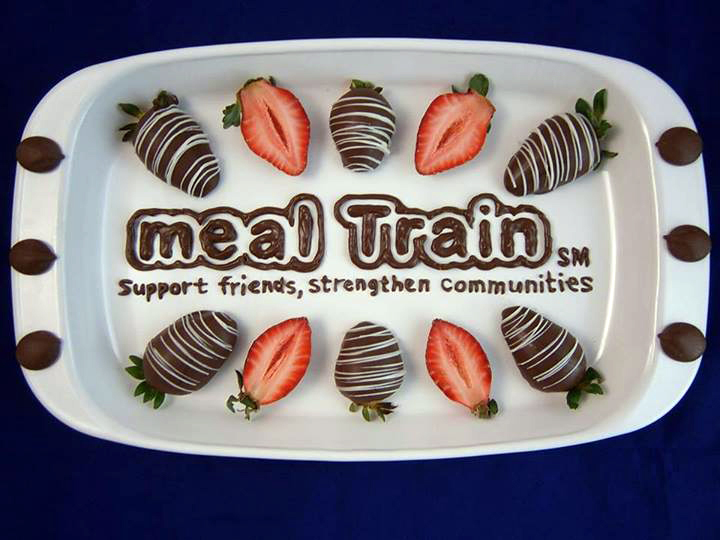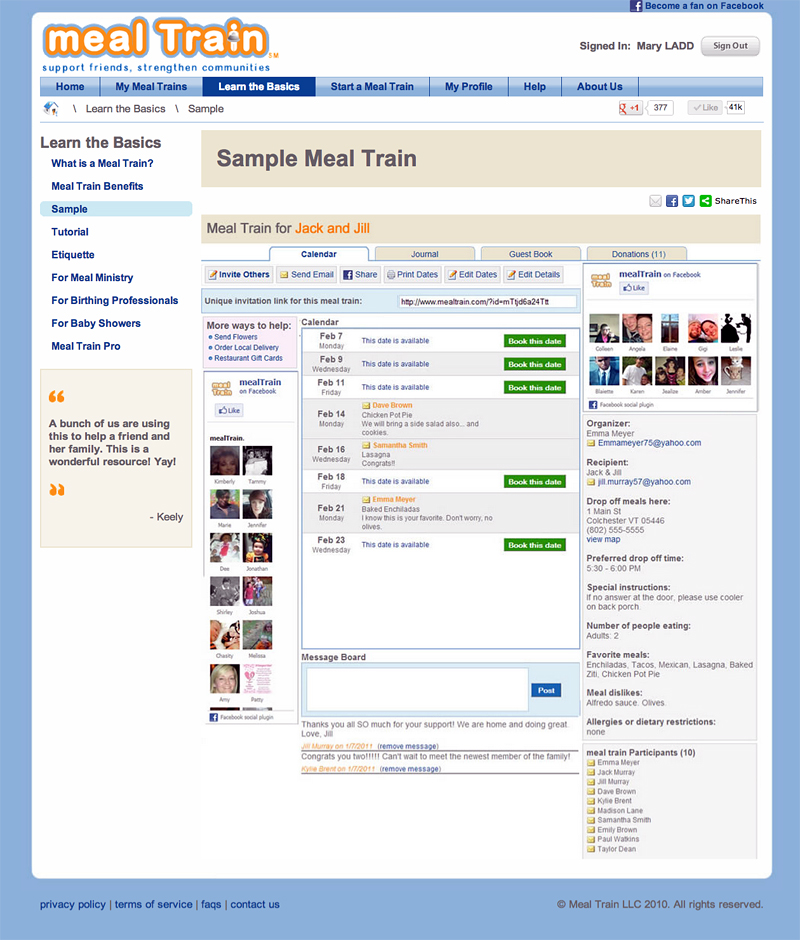When I found out I had breast cancer in September I made a beeline from the hospital to get some Mitchell’s ice cream. I needed to feel alive and cared for and the chocolate cone was as sweet as it was filling and calming—just enough to get me through the shock. Now that I’m three weeks into the diagnosis and have started chemo treatments, I remain comfortable talking about food over the nitty gritty of what it’s like to actually have cancer. Why make everyone feel as tired as I do? It’s so much easier to talk baked goods, or chicken soup with crusty bread—topics that will always be near and dear to my heart...or belly, as it were. Friends have said, “let me know what I can do” when they find out this bit of bad news. Then a friend offered: “let me know if you want me to set up a Meal Train, for people to bring you food.” That got my attention.
Meal Train is a sizable online entity that serves folks with challenging medical, life or financial circumstances: from newborn babies to cancer, deployment or natural disaster—-basically the sort of surprise “oh shit” moments where folks quickly find they could lean on others. Meal Train gifts me food from friends—a diverse group of carnivores, vegetarians and everything in between. I pick the dates and times and detail desired dishes. So far that's meant goodies that definitely helps me feel less weak: beef stew, roasted chicken, lentil veggie daal and black bean soup with mini corn muffins—-even stuffed crust pizza from the award winning Zachary’s.
Turning to Meal Train is a first, and meals are something I definitely anticipate. Given my food background, I do miss shopping, prepping, cooking and the spiritual sustenance it provides. But it’s tough to walk even a few blocks, and I realized I need to accept my changing health status and take it easy until things improve. Using this setup helps my friends as well--my friend Judy told me that "it's a blessing because we can sign up and feel like we're doing something to help you." The feeling that I am a part of a community has really deepened and I feel both helped and, cheesy as it may sound, loved by many.

